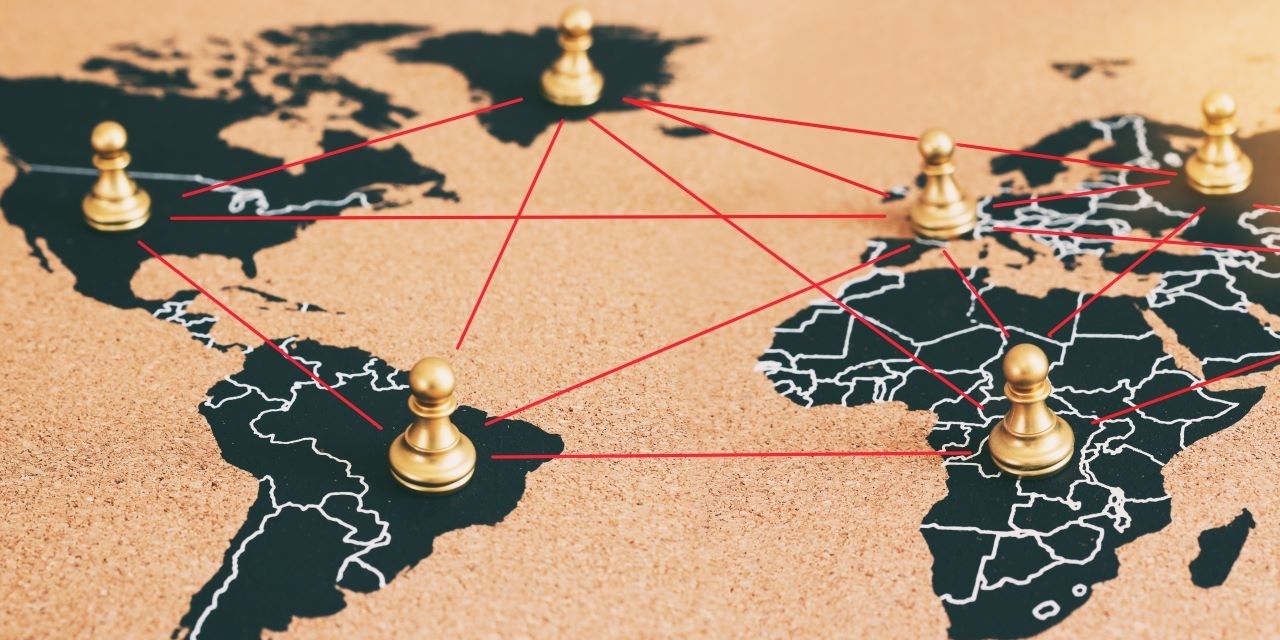Contemporary Peace Research and Practice By Chung-in Moon | 02 June, 2022
America’s Shaky Leadership Makes for Uneasy Global Order

This article was first published by Hankyoreh on 30 May 2022 and is reproduced with permission.
Image: tomertu/Shutterstock
In geopolitics, hegemony refers to the concentration of power in a single state. When a hegemon rules the world through strength, an empire is born. But when a state uses its position to build a new world order that brings shared prosperity and peace to the international community, it can establish hegemonic leadership.
Since World War II, the US is the only state to have played that role. The structural stability of the world order was made possible by the colossus of the US, which provided the public goods of national security and free trade.
The world hoped for even more from the US after the Cold War. The US’ response was aptly expressed in a speech that George H. W. Bush made before the UN General Assembly on Sept. 23, 1991.
“Let me assure you, the United States has no intention of striving for a Pax Americana,” Bush said. “We seek a Pax Universalis built upon shared responsibilities and aspirations.”
Bush was expressing the US’ commitment to seeking world peace through the UN, rather than hegemony of its own. That was the US’ vision of being a “benevolent hegemon” that would create world peace and shared prosperity through cooperation with the international community, while also enjoying the hegemonic advantages of a unipolar older.
But the US’ response changed after September 11, 2001. Al-Qaida’s terror attack on the US heartland and the loss of innocent lives enraged the American government and the American people. Under the influence of the neocons, President George W. Bush adhered to a moral absolutism that divided the world into good and evil based on American values, a hegemonic unilateralism that rejected the UN and the multilateral order, and an aggressive realism that sought to launch pre-emptive strikes at any signs of terrorism.
That was the background of the US’ invasions of Afghanistan and Iraq. It signified that the US had changed from a benevolent hegemon to an imperious and vengeful one.
The inauguration of Barack Obama as US president in January 2009 marked the beginning of a new foreign policy. Obama proclaimed a move from moral absolutism to a foreign policy of empathy and inclusion and from unilateralism to multilateral cooperation, as well as a transition to the liberal stance of resolving major issues in the world through cooperation with friends and allies.
But there were few signs of hegemonic leadership in Obama’s foreign policy. While he withdrew American troops from Iraq, he kept them in Afghanistan, and his rhetoric about a nuclear-free world and a no-first-use nuclear doctrine ultimately came to nothing.
In fact, it was Obama who unveiled the “pivot to Asia” in response to the rise of China, intimating a reversion to Cold War tensions. This ambivalent stance of advocating liberalism while manoeuvring alliances to maintain American advantages can be described as a “hedging hegemon.”
Obama was followed by Donald Trump, who didn’t have the slightest interest in hegemonic leadership. Under his mantra of “America First,” Trump rejected multilateral cooperation and slammed American allies for getting a “free ride,” according to his transactional viewpoint. That was made evident by Trump’s remarks that the US would no longer serve as the “world’s policeman.”
Trump advocated American strength, but that was aimed at unilaterally supporting the US’ national interest, rather than at stabilising the world order. The US was no longer a hegemonic leader, but merely a self-centred superpower. That was the greatest deviation in the history of American foreign policy.
What of President Joe Biden, who visited South Korea last week? The Biden administration has vocally advocated restoring a world order based on rules and norms and strengthening alliances and multilateral cooperation. The goal is to meet new geopolitical and geo-economic challenges through close cooperation with friends and allies, while recognising the limits of American power.
The US is forging a coalition of liberal democracies against the authoritarian axis of countries like China and Russia while asking friends and allies to join and commit to that coalition to restore American competitiveness and secure its economic security. That’s the crux of the Biden administration’s concept of a “comprehensive strategic alliance.”
At the same time, it’s hard to shake the impression that the US has become a kind of “outsourcing hegemon” that relies on its friends and allies to handle big jobs in the international community because its own power is more limited than it once was.
The US’ hegemonic leadership is sine qua non for global peace, prosperity and stability. The goals of that leadership may well be adjusted in line with changes and challenges at home and abroad.
But there have been irregularities in US’ leadership over the last 40 years, and every incidence of volatility in the centre has been nerve-racking for the world.
Is the ideal of “benevolent hegemon” proposed by George H. W. Bush no longer feasible? Is it foolish to dream of a grand strategy of inclusion, empathy, joint security and peace, rather than parochial security and rejection of difference?
Considering that the US still has no serious rivals, there’s a desperate need for the US to craft a bold vision for a collaborative order and for the future of the world.
Chung-in Moon is the Chairman of the Sejong Institute. He is a member of the Toda International Research Advisory Council.